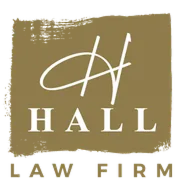The Ever-Present Eye: Video in Our Daily Lives
In the era of smartphones, home security cameras, and workplace surveillance, capturing life's moments on video has become second nature. Whether it's a spontaneous moment on the street or a taping of a special occasion, video recordings are ubiquitous. Yet, with this abundance comes an important question: Can these recordings be used as evidence in legal matters?
Federal Guidelines on Video Recording
Generally speaking, at the federal level, video recording in public areas like streets or parks—where there’s no expectation of privacy—is permitted. This means that if you're out and about in a public setting, recordings taken there could potentially be used in legal proceedings with few restrictions. However, the situation becomes more complex with video recordings in private spaces.
The Challenges of Recording in Private Settings
When it comes to private areas such as restrooms, dressing rooms, or hotel rooms, recording without consent is illegal and can constitute a federal crime. Such spaces are designed with privacy in mind, and capturing video without permission can lead to serious legal repercussions.
Audio Recording Rules and the Complications They Present
Audio recordings operate under different rules. Federal law permits one-party consent, meaning only one person in the conversation needs to agree to the recording. However, many states require all-party consent, complicating the legality of using such recordings as evidence, especially in interstate or multi-state scenarios. It's wise to adhere to the strictest applicable law, usually all-party consent, to err on law’s safe side.
Workplace and Semi-Public Area Considerations
In semi-public areas or workplaces, recording laws vary. Some states demand clear disclosure and consent for both video and audio recordings. Employers need to be particularly aware of local laws to ensure compliance and avoid potential legal backlash.
The Importance of State Law Awareness
State laws can be more stringent than federal guidelines. Violating these laws might lead to criminal charges or civil penalties. In public spaces, video-only recordings are typically acceptable as long as they don’t invade someone's privacy or capture audio without consent.
Making Informed Decisions About Recording
While modern technology makes recording easy, understanding and respecting the legal framework is vital. Before pressing "record" in private or semi-private settings, pause to consider the legal implications and, if in doubt, seek professional legal advice. Navigating these regulations can be challenging, but doing so safeguards against costly legal mistakes.
